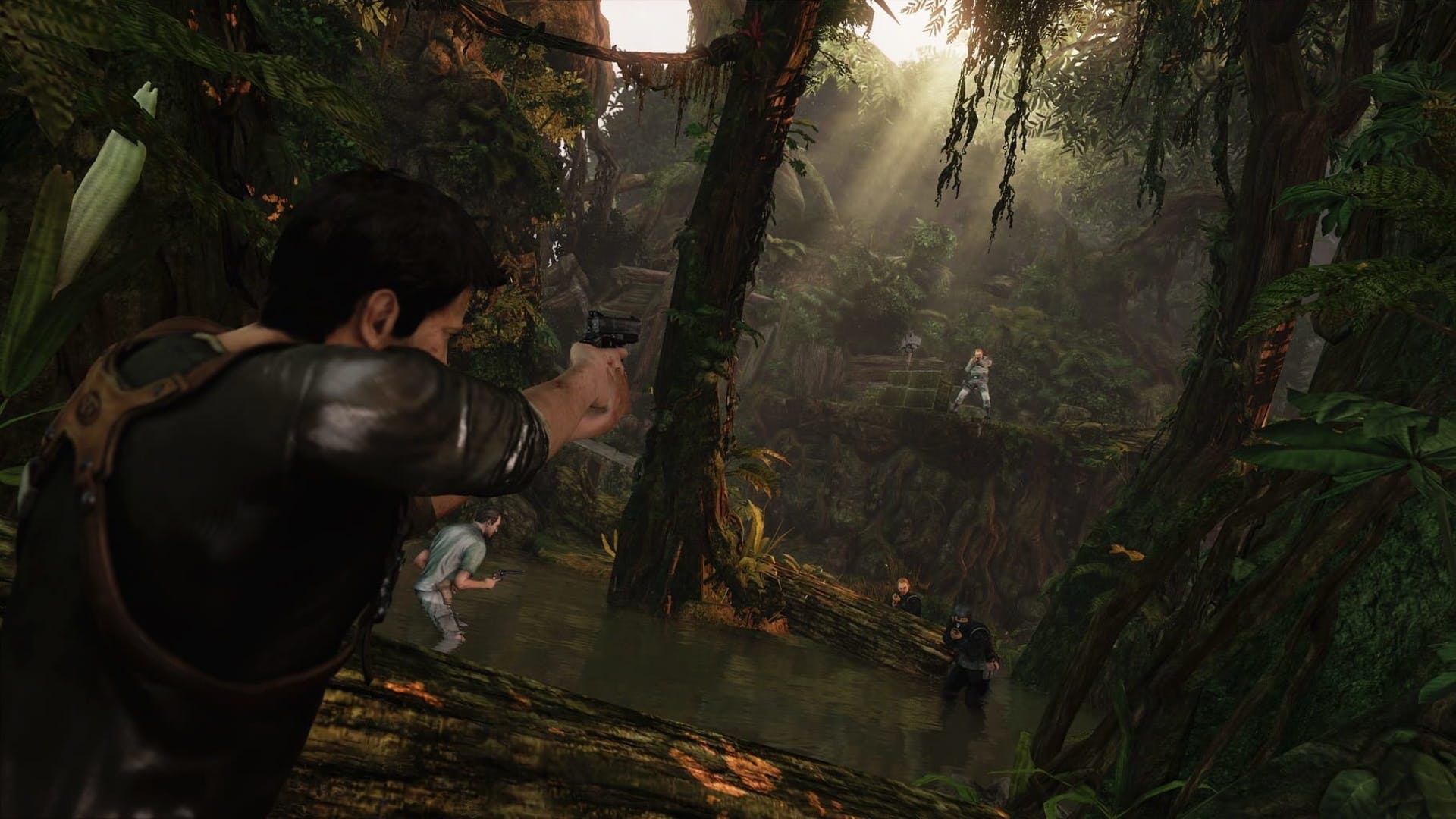

Let's say you write a three-minute action cue. IGN: And since you are working on such a massive scale - a gaming experience can often last anywhere from 10 to 30 hours - how are issues like that addressed when you're composing the music for a game? Edmonson: Part of that is done by the music implementation, and I'll give you an example. You really need a strong creative team to give you direction, and in Uncharted, I have that.
#UNCHARTED 2 OST TV#
So the picture can't be the thing that actually drives your imagination like it does on a TV show or a film. They may have some very rough animatics, but you ultimately have no idea what it's going to look like. In all honesty, there's absolutely nothing to look at.

But when you start working on a video game, you really start early in the process. But it's not going to look any different.
#UNCHARTED 2 OST MOVIE#
IGN: What are some of the main differences when you're approaching a video game as opposed to working on a movie or TV show? Edmonson: You know, it always looks a little bit like this: when you're doing a movie or TV show, by the time you see the picture, it's already done it's edited, the performances are intact, and your job is now just to become part of the fabric of the storytelling process. Then we've extrapolated on that in Uncharted 3. I did the first one, was thrilled, learned a lot, and then I think I hit my stride by the time we did Uncharted 2. So anyway, it was just a logical extension. But it developed in the second game where you had Chloe. Not so much in the first game, you only had one. It had a lot of female characters that were strong in different ways. Nathan Drake is not completely unlike Malcolm Reynolds. They showed me the concept for it, and in many ways, it had similarities that you could compare to Firefly. Are you interested?" I said, "You know what? I haven't done one yet, and I'm not sure I'm the right guy because there are other people who would know more about that than me." But they said, "Well, just come on down and let's talk about it." So I went down, and by the time I met them, I loved them. So they called me and said, "We're doing this video game. And there was some track on the Firefly CD that worked for them. They made a rough trailer, and they were looking at music against the trailer to see what might work. At that point, Naughty Dog was making a trailer for E3 - this was before the first Uncharted game. Uncharted 3: Drake's Deception IGN Review IGN: So coming from a background of movies and television, how did you make the transition into video games and the Uncharted franchise? Edmonson: Well, in all honesty, it was kind of an offshoot of Firefly. I thought when I saw the two hour pilot that I would be working for ten years on that. He gave me the two-hour pilot and said, "Take a look at it, and if you're interested, we can do this thing." And I looked at it, and I thought it was one of the best pilots I'd ever seen in my whole life. Would you be interested in coming down and looking at this new show?" And I said, "Sure!" So I went down, and Joss and I - I didn't know him, I'd never met him - we just ended up having fun. But one day the phone rang! They said, "Hey, this is Joss Whedon's office. It's not like you're just going to sit around and wait for the phone to ring. So everybody in town sent in their CDs, and once you send it you kind of just write it off. Joss was coming off of Buffy and Angel, and everybody knew that he was making this new show. Then I ended up back in TV, but the way I got hired on Firefly was really an unusual tale in Los Angeles. Can you give me a little background on how you got hooked into composing music and your connection with the show? Greg Edmonson: I started off in TV early on, and there was a time where I quit doing TV for awhile and I did a lot of indie movies. IGN Movies: Before we get into Uncharted, I have to say that I'm a huge Firefly fan.


 0 kommentar(er)
0 kommentar(er)
